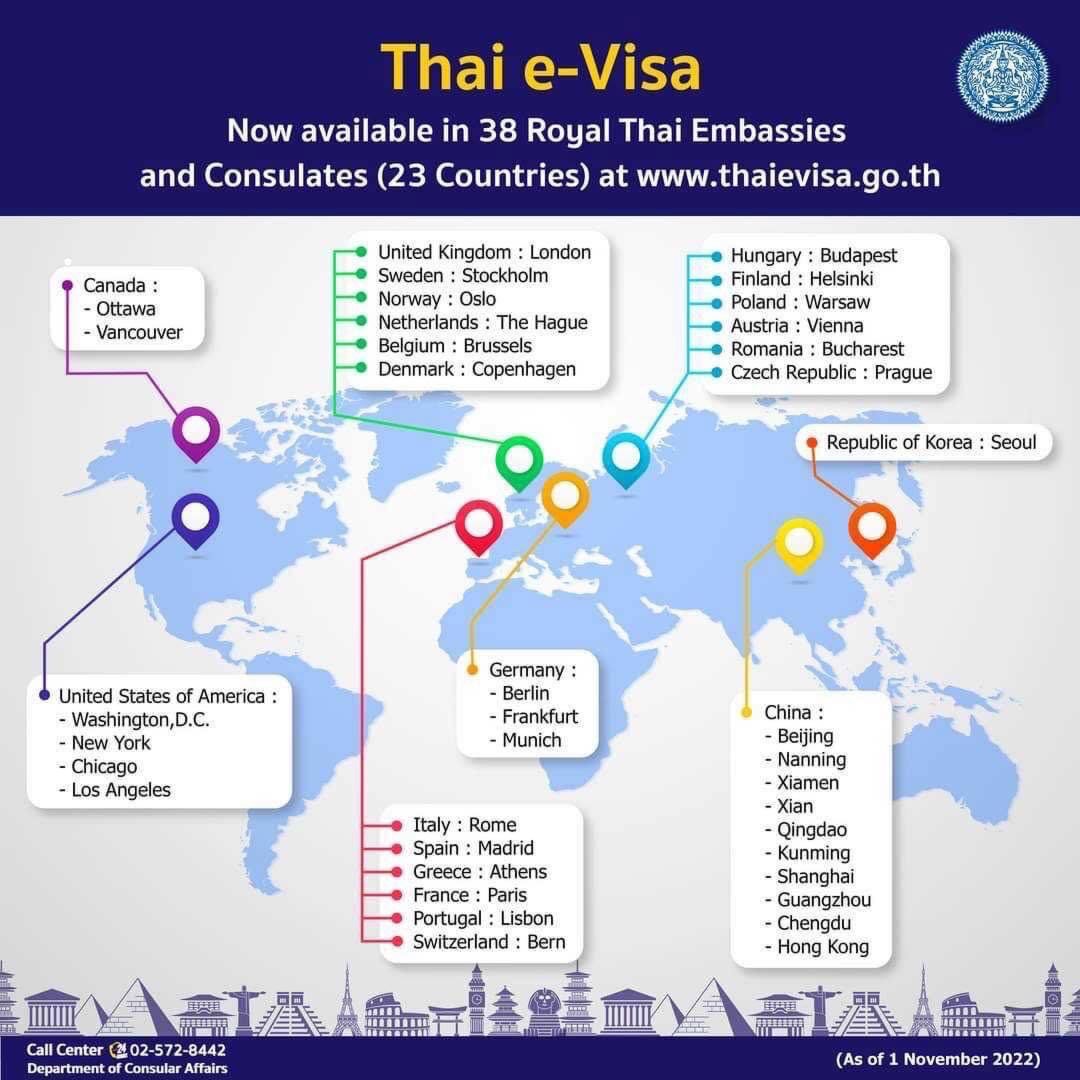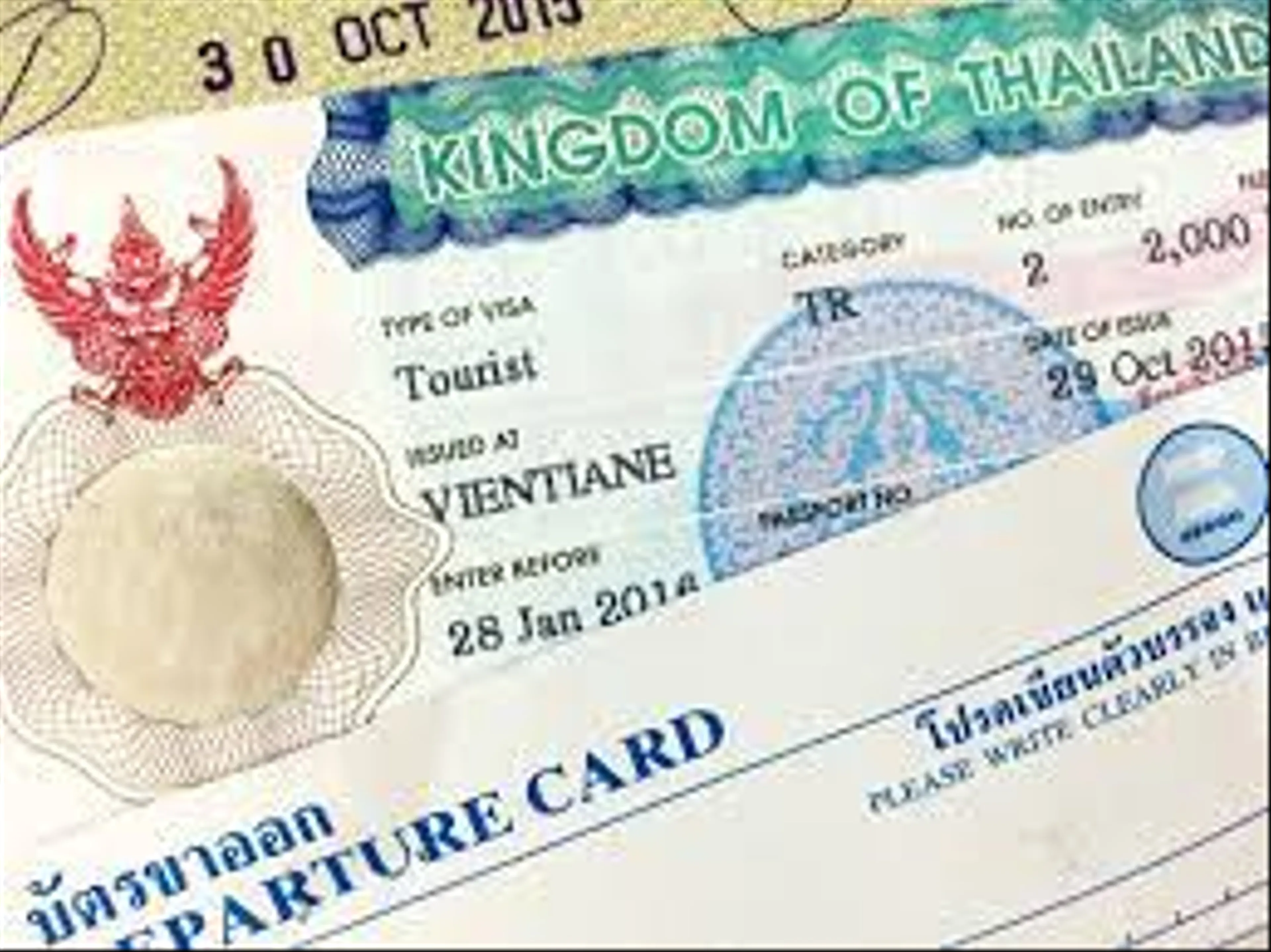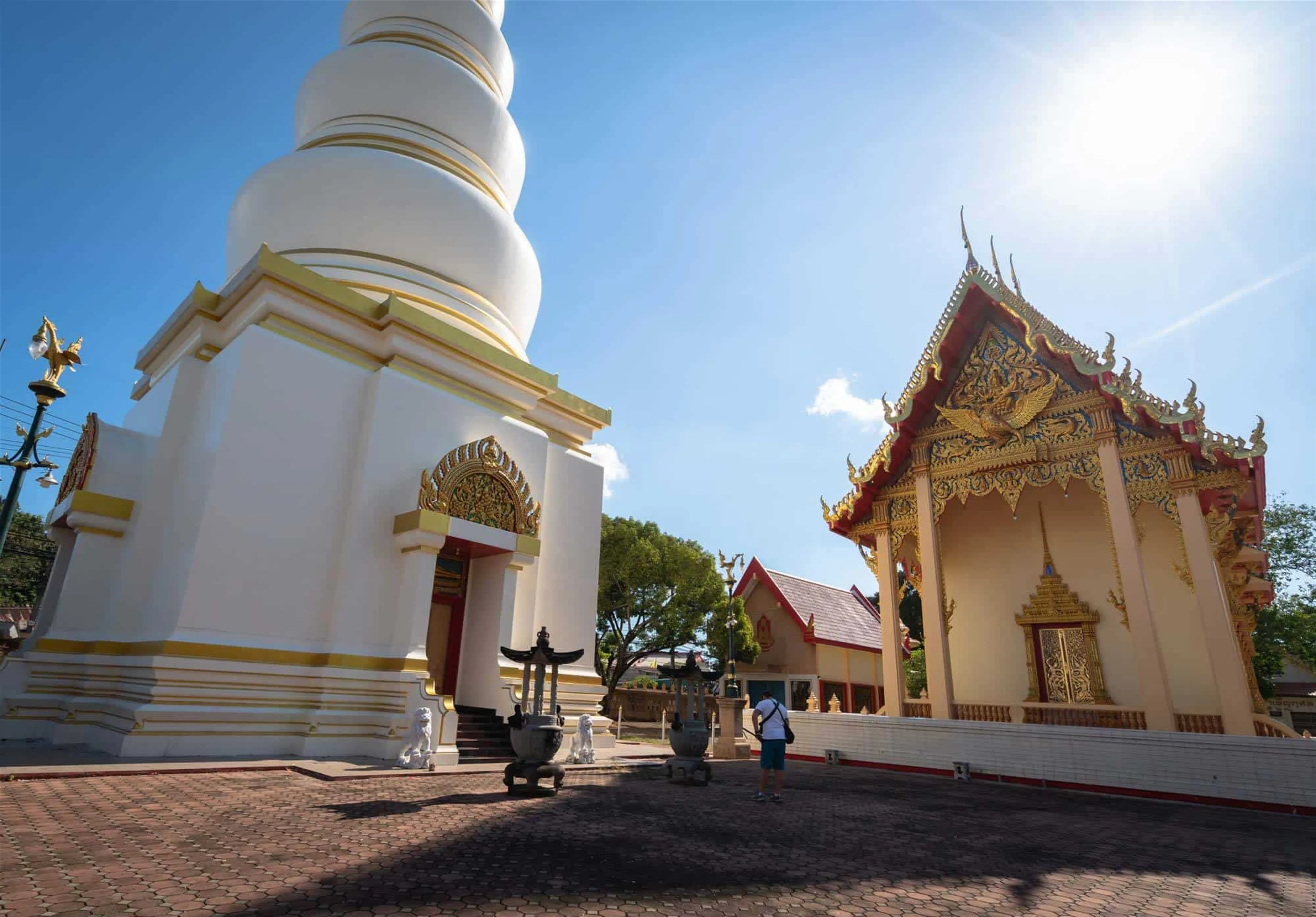Thailand has long been considered the tourist hub of South East Asia. People will arrive in the country, enjoy their time, and then head out to explore neighboring countries. Because of its welcoming locals, rich culture, exquisite food, beach, and mountain getaways, people know they will return. Many foreigners stay in Thailand for months and barely scratch the surface of discovering this beautiful country. This is why a Multiple Entry Tourist Visa is the perfect travel solution.
Foreigners can enter Thailand for a holiday in many ways. If they are limited in time and are from a Visa Exempt country, they can visit for up to 30 days without needing a visa through Thailand’s Visa Exemption scheme. This scheme is open to 64 nationalities from around the world. If someone is not eligible for a visa exemption, they can organize a 15-day Visa on Arrival when they arrive in Thailand.
These are good if you are short on time or only intend to visit once, but to truly experience Thailand, you need time. If you plan to visit multiple countries during your stay in Asia, the Multiple Entry Visa is the quickest and cheapest way to plan your holiday.
What is a Multiple Entry Tourist Visa?
A Multi-Entry Tourist Visa allows foreign nationals unlimited entry to Thailand over a 6-month period. It is issued to people who visit the country for tourism, leisure, or medical purposes.
A multi-entry visa allows the holder to stay in Thailand for up to 60 days per visit. A person could visit the islands in the south of Thailand, relax on the beach and learn to scuba dive for two months; fly to Vietnam and enjoy the sights of Saigon for a week or two; and then return to Thailand’s northern mountains to experience animal sanctuaries, Lan Na culture, and cook northern Thai food.
With a multi-entry visa, people can enter either by air, land, or sea. Many people arrive by plane and then leave by train or boat.
The visa is valid for 6 months after it is approved. This means that people have 6 months to use the visa and enter Thailand as often as they like from the date their visa is approved. It is easy to confuse visa validity with time spent in the country. Validity is how long you have to utilize or use the visa before needing to apply for a new one. Time in the country is the 60-day permission of stay. A stamp is placed in your passport for 60 days when you arrive, so a visitor can arrive on the last day of their visa validity and still get a full 60 days to stay in Thailand.

How to apply for a Multiple Entry Tourist Visa
This system was updated during Covid and is often the simplest way to obtain a visa.
When applying for a visa online, applicants need to create an account and apply as individuals. Once the account is created, individuals will need the following documents:
- A current passport with no less than 6 months validity beyond the date of departure from Thailand and at least 2 blank pages. Applicants must complete online visa applications with their given name(s) and surname matching their passports.
- Printout of visa application form submitted online, with barcode
- Travel booking confirmation
- Proof of accommodation in Thailand, e.g. hotel booking, invitation letter from family or friend in Thailand
- Financial evidence showing a balance of 200,000 Thai Baht (approx. £5000, USD$5,5000, Aud$8000). This is to prove financial stability over a 6-month period. e.g. bank statements, proof of earnings, sponsorship letter from employer
- Confirmation of legal residence in the country where the application is submitted (if applicants are not nationals of these countries) e.g. long stay visa, residence permit, BRP card
E-Visa applicants do not need to submit their passport and original supporting documents in person at a Royal Thai Embassy or Consulate. After the e-Visa application has been approved, a confirmation email is sent to applicants. It is best to print a copy of the confirmation email when you are ready to travel. This will be presented to airlines and Thai Immigration officials when traveling to Thailand.
Certain countries are not eligible to apply for an E-Visa because additional documents are needed for approval.
If you are unsure if eligible for an online visa or do not have access to the online application process, you can contact your local Thai Embassy and organize an appointment. Immigration requirements can change without notice, and many embassies will not allow walk-ins, so it is best to contact the embassy when you are ready to apply. They will confirm the costs and paperwork required.
Minimum documents needed:
- Passport with 6 months (after the intended date of departure from Thailand) validity and at least 2 empty pages.
- Visa application form completed and signed
- Proof of travel booking
- Proof of Accommodation
- Financial evidence – Bank statement or proof of earnings (equivalent to 200,000 Thai Baht)
- Letter of acceptance from institutes or companies organizing activities (if traveling for the purpose of scuba diving, martial arts, or culinary learning)
All documents in a foreign language must be translated into English or Thai and certified before they will be approved.
Visa Cost
The cost of a multi-entry tourist visa can vary from country to country, but an estimated cost is $150 – $250 USD. It is important to note that many embassies will only accept payment in $USD. Confirm cost and currency with your local Embassy or Consulate when making an initial query.
If you are applying online, the E-Visa system will confirm the payment due and process the payment through their secure payment portal.
Assistance with Visa Applications
The process for applying is straightforward and can be done yourself. If you would like help confirming documents are correct before lodging your application or wish to receive approval without going back and forth to embassy appointments, you can enlist the services of a Visa Assistance Agent. These agents are aware of current immigration requirements and will confirm documents are correct to avoid delays. They will liaise with embassies and consulates on your behalf.
Agents will charge a fee for their service but often save you time and money in the long run. They streamline your application process and speed up your approval. Agents can assist with online applications, though you may be required to pay the visa fee directly through E-Visa secure payment portal.
Tourist Visa Restrictions
As noted above, Multiple Entry Tourist Visas are for tourism, leisure, or medical purposes only. Foreigners cannot earn income, study long-term, or conduct volunteer activities in Thailand if they have entered with a tourist visa.
If you wish to take part in any of the above activities, you will need to look at long-term visa options. You can contact your local Thai embassy to discuss options, or seek assistance from a Visa Agent to apply for a long-term visa.
Arriving in Thailand
When you arrive in Thailand, you will need to provide the following documents at Passport Control:
- Passport with approved visa attached (if you applied at an Embassy)
- Confirmation letter of visa approval (if you applied online)
- Confirmed exit flight from the country no later than 60 days
- Confirmed accommodation (at least for the first night in the country)
- Current financial or bank statement showing funds available (200,000 Thai Baht equivalent)
A good practice is to print copies of these documents. Entry approval is at the discretion of immigration officers and presenting hard copies of these documents will speed your processing through Passport Control and help ease congestion at the airport.
Extending your Tourist Visa
If you decide you would like to stay for longer than 60 days before visiting somewhere else, it is possible to extend your stay in Thailand. Visitors with a Multi-Entry Tourist visa can extend their time in the country by 30 days by visiting a local Thai Immigration Office. An extension of stay will cost 1900 Thai Baht and must be paid in cash (Thai Baht) when applying for the extension.
When you extend your stay, a new stamp will be placed in your passport for 30 days from the date you are at immigration, so it is best to do this towards the end of your 60-day visit.
You need to visit the office before your current stay period expires. Staying in the country past your exit date will cause an “overstay” and you will be fined 500 baht per day after your official exit date. An overstay is noted in your passport and can affect future visa applications. This extension of stay is only available in the country.
It is important to note that Thai Immigration offices are not open on weekends.


